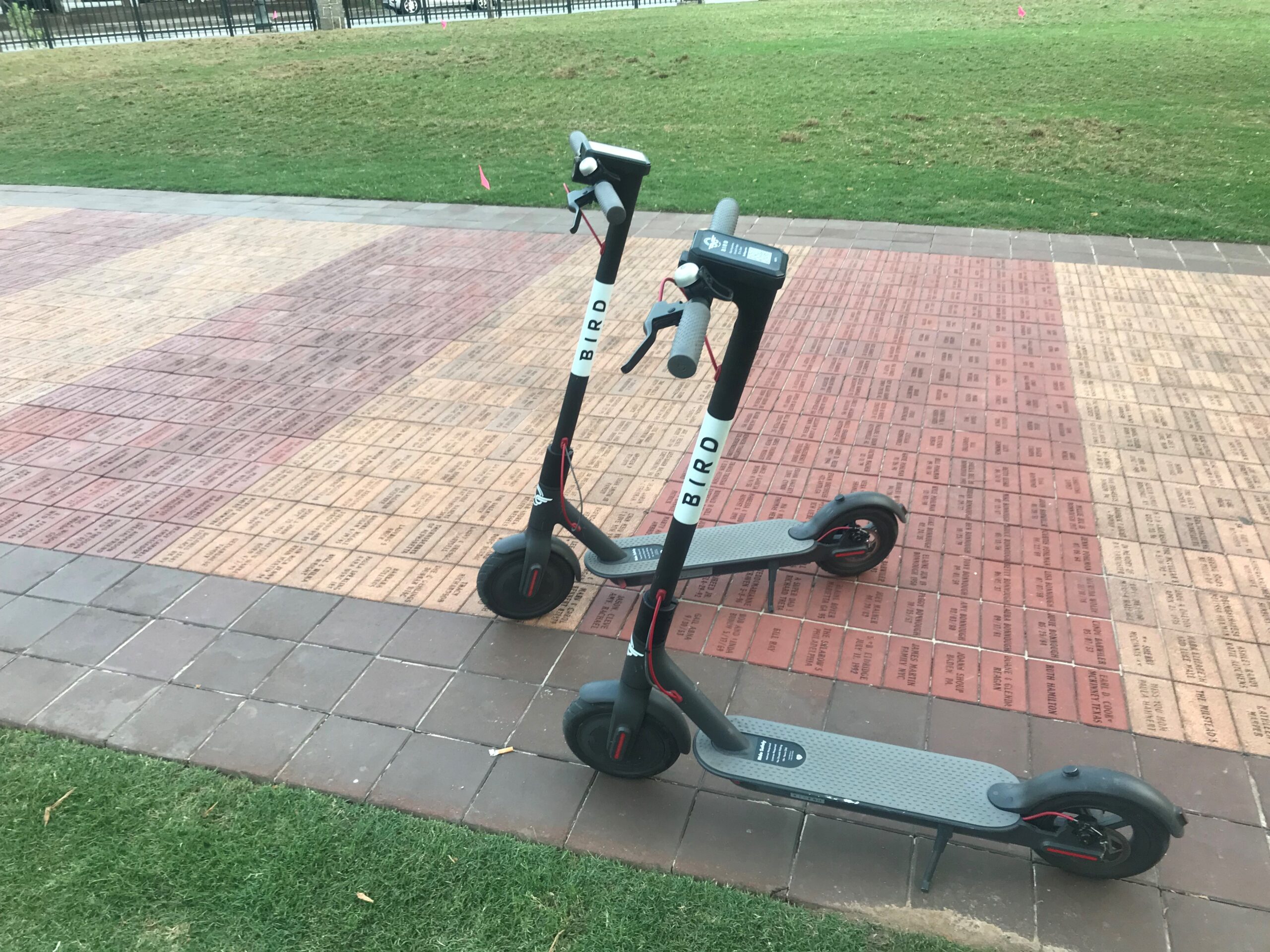Birds seem to be Atlanta’s thing – think Hawks and Falcons – and now a new bird is in town. Unlike the city’s sports teams, it’s a new way to get around.
They are known as Bird scooters, and hundreds of them seemed to show up in the city almost overnight.
The scooter company’s spokesperson, Kenneth Baer, jokes they just showed up while the city was sleeping.
“A launch team came to Atlanta and figured out the system and where to go,” Baer said. “They were first placed in four neighborhoods, Midtown, Tech Square, West End, and downtown.”
They look like the Razor scooters kids ride around. Except users don’t have to push off with one leg to get started. These are electric. Riders stand on them, turn the handle bar and they’re on their way.
One of the biggest issues with the new scooters is where to ride them.
Atlanta’ Chief Bicycle Officer Becky Katz laid out some of the rules riders should follow.
“You should operate in accordance to all traffic laws,” Katz said. “You must yield to pedestrians in all crosswalks and scooters are not allowed on sidewalks.”
They go up to 15 miles per hour, which isn’t exactly fast enough to keep up with street traffic. And a helmet isn’t required by law.
Sally Flocks, with PEDS, a group that advocates for safer sidewalks, said the city will have to make changes to its roads to accommodate alternative transportation options.
“The scooters have potential,” Flocks said. “As we’re getting more bike infrastructure, it becomes more feasible for more people to ride bikes. I think the same will be true for scooters.”
The scooters represent a new trend of alternative transportation options, being that they are dockless. That means users don’t have to rent one or return it to any specific station.
They are located throughout the city and can be found using a map on the company’s app. Users enter their driver’s license number, payment information, and scan a code on the scooter to unlock it.
Bike Share
While Relay Bike Share bikes can be dropped off wherever users end their trips, it’s fleet of bikes are mainly rented from docking stations.
The company first showed up in Atlanta in 2016. And users can leave a bike at any rack or pole and for scooters, they just have to be left out of the right of way.
Katz said not having to adhere to a specific station gives riders freedom and flexibility.
“The dockless part is actually great for the end part of your trip,” she said. “Because that way you can park the bike or scooter anywhere.”
Even though a scooter may be rode somewhere, there’s nothing that stops another rider from coming along and grabbing the one that was just used.
Baer said that’s by design. He said Bird scooters are most efficient when being used at least three times a day.
“So if you walk out of the coffee shop and the Bird you just rode there isn’t there anymore, you can check the app,” he said. “There should be another one close by.”
Katz said the benefits of the dockless systems can be outweighed if the transportation options gravitate toward one specific area.
“We really want to make sure that these technologies are accessible to all,” she said. “We don’t want a situation where only one part of town has access.”
Going Dockless
Much like their animal partners, Bird scooters return to a nest every night. They are picked up and taken to private locations to charge. The next morning, they come back online, and are dropped off again throughout the city.
That’s where the docking station comes in. Building them in areas ensures that part of town will have a bike or scooter to ride. The city focused its efforts on the west side when Relay began expanding.
Katz said docking these new technologies means more than access though.
“Stations means reliability,” she said. “So if you and a friend walk out, you know you will be able to find two bikes.”
Options soon aren’t going to be limited to Relay or Bird. A company called Lime has already applied for a permit to bring its dockless fleet or bikes and scooters to Atlanta.
The city is known for having a traffic problem. Bird has touted its scooters as a solution to that and to the last mile problem, which is getting to and from public transit from your house or job.
Joseph Hacker, who teaches transportation planning at Georgia State University, said don’t get your hopes up.
“They provide more options to get more activity in an area,” Hacker said. “Without some sort of policy involving cars they don’t reduce congestion. They just allow more activities.”
He said don’t expect to see fewer cars on the road as a result.
“I’m not sure what role the scooters fill,” Hacker said. “Unless someone steps forward and defines that better, right now they are just a toy and fun.”









